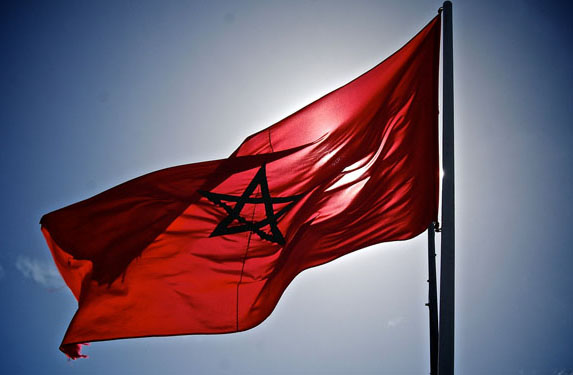EDITORIAL COMMENT: AU decision to re-admit Morocco unjustified

We are reeling in shock after the African Union voted to re-admit Morocco, a country that continues to show a total disregard of the AU’s Constitutive Act by exercising colonial authority over the Sahrawi Arab Democratic Republic.
On Monday, 39 AU member states attending the continental body’s 28th Ordinary Summit in Addis Ababa, Ethiopia, voted to re-admit the North African country after it left the union 33 years ago in anger after the bloc had officially recognised the Sahrawi Arab Democratic Republic as a member.
We are unsure what motivated such outcome — a landslide one for that matter — when it is evident that Morocco has refused to grant independence to Western Sahara and is unlikely to do so any time soon. This is despite the AU’s previous position demanding freedom for the Sahrawi Arab Democratic Republic.
Also, we are unsure why an organisation that was formed with the primary agenda to fight for the total decolonisation of the African continent and actually mobilised arms, men and global opinion to wage armed struggles against colonialism now turns around and condones that abomination by embracing a country perpetuating it.
If the AU countries that voted for Morocco’s return thought that this is an incentive to influence that country to back down on the Sahrawi Arab Democratic Republic, we argue that they used a wrong approach, which is morally indefensible too.
What they did is a betrayal of the oppressed people of that republic, the hundreds of thousands of Western Saharans who are living in abject poverty in refugee camps. Well-meaning organisations, and the AU is one of them, must always side with the underdog, who in this case has a strong case, not the oppressor.
With much respect to everyone, Sadc has always been the voice of reason in African affairs and the region demonstrated that on Monday when it voted as a bloc against condoning the Moroccan injustice
Morocco colonised Western Sahara in 1975 soon after that country had gained independence from Spain. Since then, Morocco has claimed ownership of the territory, suppressing the Polisario Front and marginalising the general citizenry of the Sahrawi Arab Democratic Republic.
The then OAU recognised the Sahrawi Arab Democratic Republic as a sovereign territory in 1982, prompting Morocco to pull out of the bloc two years later. Sadc members — South Africa, Zimbabwe, Namibia, Mozambique and Botswana — had opposed the AU’s decision along with Algeria but the majority prevailed.
Foreign Affairs Minister Simbarashe Mumbengegwi said: “It’s most unfortunate, really, because our Constitutive Act is very clear as to the founding principles of the organisation, and therefore any new member who wants to join the organisation must first comply with the principles of the organisation they want to join.
“And the most outstanding founding principles of the African Union, which it inherited form the OAU, are the question of self-determination, the question of not using violence, the question of not occupying a fellow member state, the question of decolonisation.
“Now to have a member state who is in violation of all these principles being admitted into the organisation is something that we did not expect, we didn’t think it would happen.
“It was most unfortunate but obviously the question of Western Sahara is not going to go away; it is an issue that those of us who feel that we must respect our principles, we must respect the Constitutive Act, we are going to continue to push for the self-determination of Western Sahara in spite of Morocco’s admission.”
South Africa’s ruling ANC yesterday expressed regret over the AU decision. “This decision represents a significant setback to the cause of the Sahrawi people and their quest for self-determination and independence in the Western Sahara,” the party’s international relations sub-committee chair, Edna Molewa, said in a statement.
Sadc’s position is based on principle and is consistent with the commitments the AU had been making at successive summits demanding Morocco to leave the people of Western Sahara alone.
For example, the continental body’s 25th Summit in Johannesburg, South Africa, on 14 and 15 June 2015, adopted a decision asking the UN General Assembly “to determine a date for the holding of the self-determination referendum for the people of Western Sahara.”
The AU Summit then said, while “recalling the advisory opinion given by the International Court of Justice (ICJ) on 16 October 1975, [it] calls on the UN General Assembly to determine a date for the holding of the self-determination referendum for the people of Western Sahara and protect the integrity of the Western Sahara as a non-self-governing territory from any act which may undermine it. . . [and] urges the Security Council to fully assume its responsibilities, as well as effectively address the issues of the respect of human rights and the illegal exploitation of the Territory’s natural resources.”
In March 2015 the AU had appointed former Mozambique President Joachim Chissano as its special envoy for the Western Sahara.
These decisions, and others before them were welcomed as strong commitments to contribute to the struggle for independence of the Sahrawi Arab Democratic Republic. Then, most shockingly, came the January 30, 2017 bombshell.
We are for democracy which, among other ways, is expressed through elections. The AU voted to re-admit the AU. We don’t agree with them, but it is a decision we will have to accept, with a lump in our throats, hoping that, in the fullness of time, Africa will be free from colonialism.









Comments